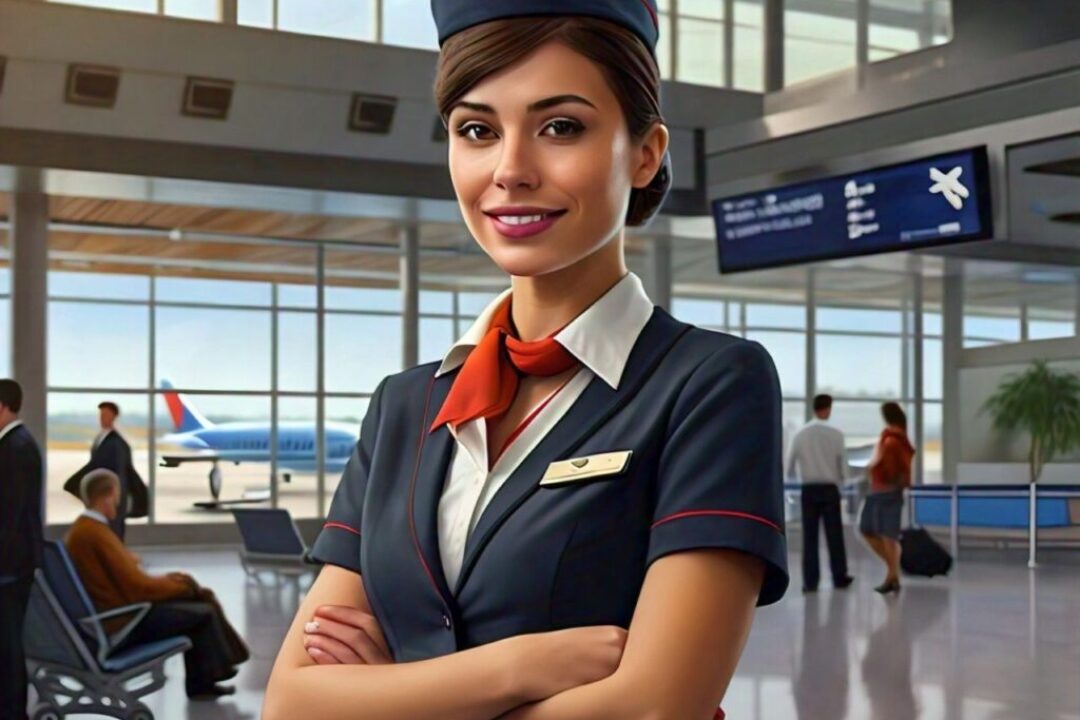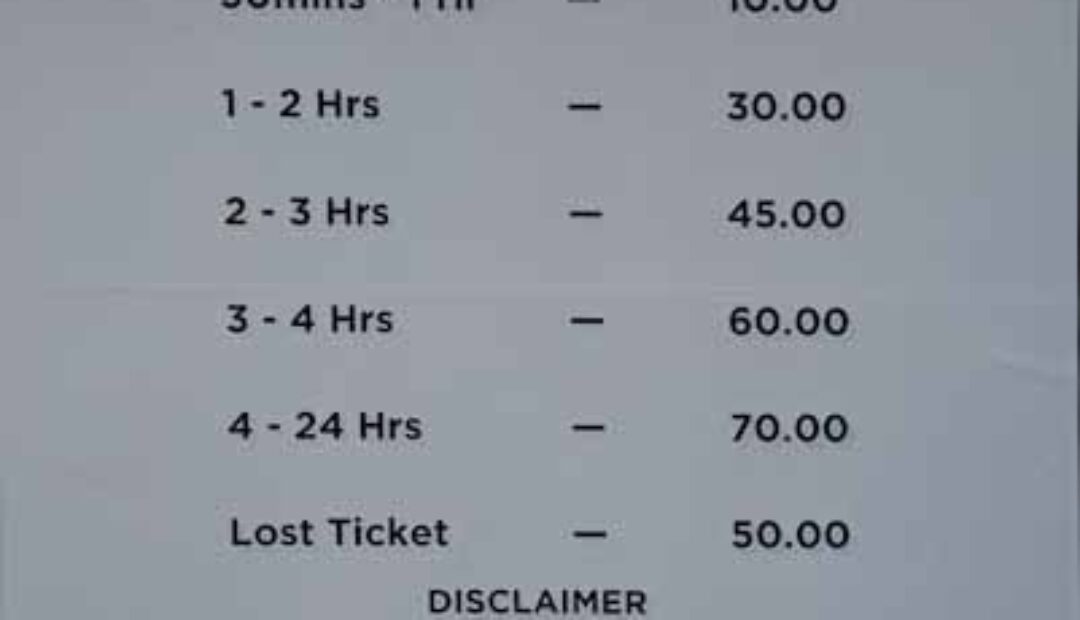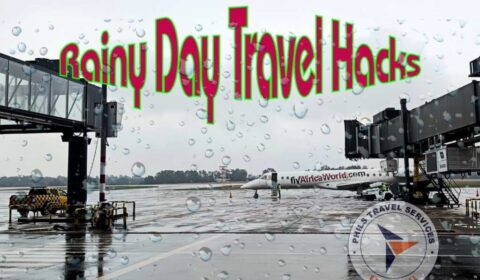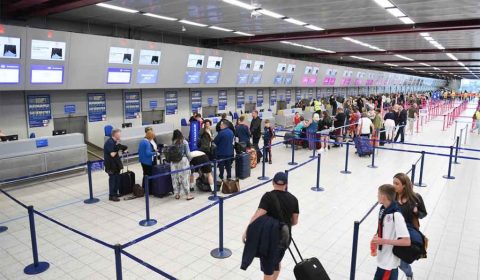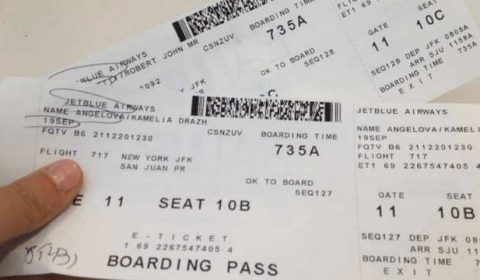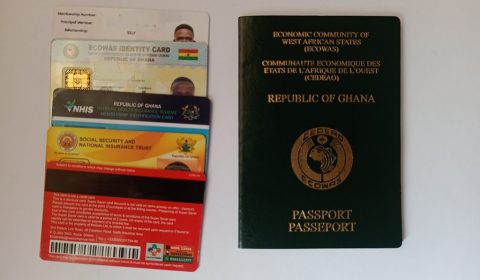Airport Careers: Job Roles, Responsibilities, and Duties
Airports are bustling hubs of activity, vital for global travel and commerce. The complexity of operations at airports means they are staffed by a diverse array of professionals, each playing a critical role in ensuring the smooth functioning of the facility.
This article delves into the various job careers available at airports, outlining the roles, responsibilities, and associated departments to provide a comprehensive overview for anyone interested in a career in this dynamic environment.
1. Airline Operations
Pilot
Pilots are at the forefront of airline operations, commanding aircraft and ensuring the safe transport of passengers and cargo across various destinations. Their responsibilities extend beyond mere navigation.
Pilots must thoroughly understand their aircraft’s systems and performance, weather conditions, and air traffic regulations. Before each flight, they conduct detailed pre-flight checks, reviewing flight plans, fuel requirements, and safety protocols. During the flight, they monitor the aircraft’s systems, communicate with air traffic control, and manage any in-flight issues that may arise. In emergencies, pilots are trained to handle a wide range of scenarios to ensure passenger safety.
The role requires extensive training, including obtaining a commercial pilot’s license and ongoing education to stay updated on new technologies and regulations. Pilots often work irregular hours, including nights, weekends, and holidays, and must maintain a high level of physical and mental fitness.
Flight Attendant
Flight attendants are crucial for ensuring passenger safety and comfort during flights. They are responsible for conducting safety demonstrations, explaining emergency procedures, and ensuring compliance with federal regulations regarding seat belts, smoking, and other safety aspects.
Before takeoff, flight attendants check the cabin for any safety hazards and verify that all emergency equipment is in working order. During the flight, they serve food and beverages, assist passengers with special needs, and manage any in-flight issues, such as medical emergencies or unruly behavior. Flight attendants are also trained in first aid and CPR, enabling them to respond effectively to health emergencies.
The role requires excellent communication skills, a calm demeanor under pressure, and the ability to handle diverse passenger situations tactfully. Flight attendants often work long hours, including nights, weekends, and holidays, and spend significant time away from home, making flexibility and adaptability crucial qualities for success in this career.
Ground Crew
Ground crew members play a vital role in airline operations, handling various tasks on the tarmac to ensure the smooth turnaround of aircraft. Their responsibilities include directing planes during taxiing, loading and unloading luggage and cargo, performing basic maintenance checks, and ensuring the overall readiness of the aircraft for departure. Ground crew must coordinate closely with pilots, flight attendants, and air traffic control to manage the timely departure and arrival of flights.
They are responsible for securing the aircraft in its parking position, connecting ground power, and managing refueling operations. Additionally, ground crew members often handle de-icing procedures, ensuring the aircraft is safe to fly in cold weather conditions. The job requires physical stamina, attention to detail, and adherence to strict safety protocols. Ground crew members typically work in shifts, including nights, weekends, and holidays, and must be able to work effectively in various weather conditions. The role offers a dynamic and fast-paced work environment, with opportunities for advancement into supervisory or specialized positions within airport operations.
2. Air Traffic Control
Air Traffic Controller
Air traffic controllers are responsible for managing the safe and orderly flow of air traffic, ensuring that aircraft maintain safe distances from each other in the air and on the ground. They communicate with pilots, providing crucial information regarding takeoff, landing, and flight paths, and manage aircraft movements within assigned airspace sectors. Air traffic controllers work in control towers, approach control facilities, and en-route centers, using radar and other advanced technology to monitor aircraft positions and direct their movements.
They must be able to quickly analyze complex information, make rapid decisions, and communicate effectively under pressure. The role is highly demanding, requiring intense concentration and the ability to handle stressful situations calmly and efficiently. Air traffic controllers undergo rigorous training and must pass certification exams to qualify.
They work in shifts to provide 24/7 coverage, often including nights, weekends, and holidays. The job offers a rewarding career with opportunities for specialization and advancement, but it also comes with significant responsibility for the safety of passengers and aircraft.
3. Airport Administration and Management
Airport Manager
The airport manager oversees all airport operations, ensuring compliance with aviation regulations and managing airport staff. They are responsible for strategic planning, budgeting, and maintaining airport facilities, as well as coordinating with airlines, government agencies, and other stakeholders.
Airport managers develop and implement policies to enhance operational efficiency, safety, and customer satisfaction. They also handle public relations, addressing community concerns and promoting the airport’s services. The role requires strong leadership skills, as airport managers supervise a diverse team of employees across various departments.
They must be adept at problem-solving, as they often need to address unexpected issues, such as weather disruptions, security incidents, or operational delays. Airport managers typically hold a degree in aviation management, business administration, or a related field and have extensive experience in airport operations. They work in a dynamic environment, requiring flexibility and the ability to adapt to changing circumstances.
The job offers a rewarding career with opportunities for growth and the chance to make a significant impact on airport operations and passenger experiences.
Operations Manager
The operations manager coordinates daily activities at the airport, ensuring that all functions run smoothly and efficiently. They oversee passenger services, security, maintenance, and other operational areas, working closely with airline representatives, government agencies, and airport staff.
Operations managers are responsible for developing and implementing procedures to enhance operational efficiency and ensure compliance with aviation regulations. They monitor airport performance, address operational issues, and implement solutions to improve service quality and customer satisfaction. The role requires strong organizational and leadership skills, as operations managers supervise a diverse team of employees and coordinate activities across various departments.
They must be able to handle stressful situations and make quick decisions, often under pressure. Operations managers typically hold a degree in aviation management, business administration, or a related field and have extensive experience in airport operations. They work in shifts to provide coverage during airport operating hours, often including nights, weekends, and holidays. The job offers a dynamic and challenging work environment, with opportunities for advancement into senior management positions.
4. Security and Safety
Security Officer
Security officers are responsible for ensuring the safety and security of passengers, staff, and airport facilities. They conduct screenings at checkpoints, monitor surveillance systems, and respond to security incidents. Security officers use advanced technology, such as X-ray machines and body scanners, to detect prohibited items and prevent unauthorized access to secure areas. They also conduct patrols and inspections to identify and address potential security threats. The role requires a keen eye for detail, the ability to remain calm under pressure, and strong communication skills.
Security officers must be able to handle stressful situations and interact with passengers in a professional and courteous manner. They undergo extensive training in security procedures, emergency response, and conflict resolution.
The job requires physical stamina, as security officers often spend long hours on their feet and may need to respond to emergencies that require quick action. They work in shifts to provide 24/7 coverage, including nights, weekends, and holidays. The role offers a rewarding career with opportunities for advancement into supervisory or specialized positions within airport security.
Read Also: 11 Best Ways To Secure A Job At The Airport
Firefighter/EMT
Airport firefighters and emergency medical technicians (EMTs) are trained to respond to aviation-related emergencies, such as aircraft fires, crashes, and medical incidents. They handle fire suppression, rescue operations, and provide medical care during emergencies. Firefighters and EMTs work closely with other emergency response teams, including police and security personnel, to coordinate efforts and ensure a swift and effective response. They conduct regular training exercises and drills to maintain readiness and stay updated on the latest emergency response techniques.
The role requires physical fitness, the ability to remain calm under pressure, and strong problem-solving skills. Firefighters and EMTs must be able to handle stressful situations and provide reassurance and support to passengers and staff during emergencies. They undergo extensive training in firefighting, emergency medical care, and hazardous materials handling.
The job requires flexibility and adaptability, as emergency response situations can arise at any time. Firefighters and EMTs work in shifts to provide 24/7 coverage, often including nights, weekends, and holidays. The role offers a rewarding career with opportunities for advancement into specialized emergency response positions or leadership roles within airport safety and security.
5. Customer Service
Ticketing and Gate Agent
Ticketing and gate agents play a crucial role in ensuring a smooth travel experience for passengers.
They assist passengers with check-in, boarding, and handling ticket-related issues. At check-in counters, they verify passengers’ travel documents, issue boarding passes, and check luggage, ensuring compliance with airline policies and regulations.
At the gate, they manage the boarding process, coordinate with flight crews, and handle any last-minute passenger requests or issues. Ticketing and gate agents must be adept at multitasking and handling stressful situations, as they often deal with flight delays, cancellations, and passenger complaints.
They need excellent communication and customer service skills to provide clear information and assistance to passengers. The role requires familiarity with airline reservation systems and the ability to handle electronic equipment. Ticketing and gate agents typically work in shifts, including nights, weekends, and holidays, to accommodate the airport’s operating hours. The job offers a dynamic and fast-paced work environment, with opportunities for career advancement into supervisory or management positions within the airline industry.
Customer Service Representative
Customer service representatives handle inquiries, complaints, and provide information to passengers, ensuring a positive travel experience. They assist with lost luggage, flight changes, and general airport navigation. Customer service representatives often work at information desks, providing directions, answering questions, and offering assistance with travel-related issues. They also handle phone and email inquiries, helping passengers with reservations, special requests, and other concerns.
The role requires strong communication and interpersonal skills, as customer service representatives interact with a diverse range of passengers, including those with special needs or in distress. They must remain calm and professional under pressure, managing difficult situations with empathy and tact. Customer service representatives also need to be knowledgeable about airport services, facilities, and policies to provide accurate and helpful information. The role involves working in shifts, including nights, weekends, and holidays, to ensure coverage during the airport’s operating hours. This job offers a rewarding opportunity for those who enjoy helping others and thrive in a fast-paced, dynamic environment, with potential for career advancement within the customer service and hospitality sectors of the airline industry.
6. Maintenance and Engineering
Aircraft Mechanic
Aircraft mechanics are responsible for performing regular maintenance and repairs on aircraft, ensuring they are in optimal condition for safe flight operations. They work on engines, electrical systems, hydraulics, and structural components, conducting inspections and diagnosing issues. Aircraft mechanics use specialized tools and diagnostic equipment to identify problems and make necessary repairs or replacements.
They also perform routine maintenance tasks, such as checking fluid levels, lubricating parts, and conducting safety checks. The role requires a high level of technical expertise, attention to detail, and adherence to strict safety protocols. Aircraft mechanics must be familiar with aviation regulations and industry standards, as their work is crucial for ensuring the safety and reliability of aircraft.
They typically hold an Airframe and Powerplant (A&P) certification from the Federal Aviation Administration (FAA) and undergo continuous training to stay updated on new technologies and procedures. Aircraft mechanics work in shifts to provide maintenance coverage during all hours of airport operation, often including nights, weekends, and holidays. The job offers a challenging and rewarding career for those with a passion for aviation and mechanical systems.
Facilities Maintenance Worker
Facilities maintenance workers play a vital role in maintaining airport infrastructure, including terminals, runways, and parking areas. Their tasks include electrical work, plumbing, carpentry, and general repairs to keep the airport facilities functional and safe. Facilities maintenance workers conduct regular inspections to identify potential issues and perform preventive maintenance to avoid disruptions.
They respond to maintenance requests and emergencies, such as electrical outages or plumbing leaks, ensuring timely resolution of problems. The role requires a broad skill set, physical stamina, and the ability to work independently or as part of a team. Facilities maintenance workers must be familiar with building codes and safety regulations, and they often work with various tools and equipment. The job involves working in different weather conditions and requires flexibility, as maintenance tasks can vary widely.
Facilities maintenance workers typically work in shifts to provide coverage during all hours of airport operation, including nights, weekends, and holidays. This role offers a stable and hands-on career with opportunities for specialization and advancement within airport facilities management.
Do you need someone to talk to about Careers at the Airport, Click here now!
7. Retail and Hospitality
Retail Sales Associate
Retail sales associates work in airport shops, selling goods to travelers and providing a pleasant shopping experience. They manage inventory, restock shelves, and assist customers with their purchases. Retail sales associates also handle transactions, process payments, and provide information about products and promotions. They need excellent customer service skills, as they interact with a diverse range of travelers and must be able to address inquiries and resolve issues promptly.
The role requires attention to detail, organizational skills, and the ability to work efficiently in a fast-paced environment. Retail sales associates often work long hours, including nights, weekends, and holidays, to accommodate the high volume of travelers. The job offers a dynamic work environment with opportunities for career advancement within the retail industry, and it provides a unique chance to interact with people from around the world.
Restaurant Staff
Restaurant staff in airports include chefs, waitstaff, and baristas who provide food and beverage services to travelers. They ensure quick and efficient service to meet the needs of busy passengers, preparing and serving meals, beverages, and snacks. Chefs and kitchen staff are responsible for maintaining high standards of food quality and hygiene, while waitstaff and baristas focus on customer service, taking orders, serving food, and handling transactions.
The role requires excellent communication skills, teamwork, and the ability to work under pressure, as airport restaurants often experience high volumes of customers. Restaurant staff must also adhere to health and safety regulations, ensuring a clean and safe dining environment. They typically work in shifts, including nights, weekends, and holidays, to provide coverage during the airport’s operating hours. This job offers a dynamic and fast-paced work environment, with opportunities for career advancement within the hospitality industry.
8. Logistics and Baggage Handling
Baggage Handler
Baggage handlers manage the loading, unloading, and transportation of luggage, ensuring that it is accurately routed to and from aircraft. They operate conveyor belts, baggage carts, and other equipment to move luggage efficiently and safely. Baggage handlers also conduct security checks on luggage, following strict protocols to identify and report any suspicious items. The role requires physical stamina, as it involves lifting and moving heavy bags, and the ability to work in various weather conditions.
Baggage handlers must be detail-oriented to ensure that luggage is correctly labeled and transported to the right destination. They often work in shifts, including nights, weekends, and holidays, to provide coverage during all hours of airport operation. This job offers a hands-on and active work environment, with opportunities for career advancement into supervisory or specialized logistics roles within airport operations.
Cargo Agent
Cargo agents handle the logistics of shipping goods via air transport, managing documentation, coordinating with freight companies, and ensuring the safe and timely delivery of cargo. They process shipping orders, prepare cargo for transport, and oversee the loading and unloading of goods. Cargo agents must ensure that all shipments comply with aviation regulations and security protocols.
They work closely with customs officials, freight handlers, and other airport staff to manage the movement of cargo efficiently. The role requires strong organizational skills, attention to detail, and the ability to handle complex documentation.
Cargo agents often work in shifts, including nights, weekends, and holidays, to accommodate the 24/7 nature of airport operations. This job offers a dynamic and challenging work environment, with opportunities for career advancement within the logistics and transportation sectors.
9. Customs and Immigration
Customs Officer
Customs officers inspect luggage and cargo for prohibited items, collect duties, and enforce customs regulations. They ensure that all goods entering and leaving the country comply with laws, conducting thorough inspections and investigations as needed.
Customs officers use advanced technology, such as X-ray machines and scanners, to detect contraband and illegal items. They also handle paperwork and documentation related to imports and exports, ensuring accurate record-keeping and reporting. The role requires strong analytical skills, attention to detail, and the ability to handle stressful situations.
Customs officers must be able to communicate effectively with travelers, providing clear explanations of customs regulations and procedures. They undergo extensive training in customs laws, security procedures, and investigative techniques. Customs officers typically work in shifts to provide coverage during all hours of airport operation, including nights, weekends, and holidays. This job offers a rewarding career with opportunities for advancement into specialized enforcement or supervisory roles within customs and border protection agencies.
Immigration Officer
Immigration officers verify the documentation of travelers entering or exiting the country, ensuring compliance with immigration laws and policies. They review passports, visas, and other travel documents, conduct interviews, and make decisions on entry or exit permissions.
Immigration officers also handle cases of inadmissible travelers, managing their detention and deportation if necessary. The role requires strong communication skills, attention to detail, and the ability to handle sensitive and potentially confrontational situations with professionalism.
Immigration officers must be knowledgeable about immigration laws, policies, and procedures, and they undergo extensive training to stay updated on legal and procedural changes. They work in shifts to provide coverage during all hours of airport operation, including nights, weekends, and holidays.
This job offers a challenging and rewarding career with opportunities for advancement into specialized immigration enforcement or supervisory positions.
Conclusion
Airports are microcosms of the larger world, where various professionals converge to facilitate seamless travel and commerce. From ensuring safety and security to providing customer service and managing complex logistics, each role is vital to the airport’s operation. Pursuing a career at an airport offers a unique and dynamic work environment, with opportunities for growth and development across numerous fields. Whether you are interested in the technical aspects of aviation, customer interaction, or security, airports offer a diverse array of career paths to explore.


